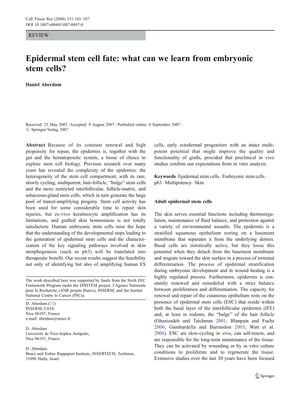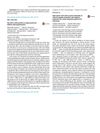Epidermal Stem Cell Fate: What Can We Learn from Embryonic Stem Cells?
September 2007
in “
Cell & tissue research/Cell and tissue research
”

TLDR Embryonic and adult stem cells are valuable for improving skin grafts and cell therapy.
The review discussed the potential of human embryonic stem cells (ES cells) to enhance the understanding and treatment of epidermal stem cell (ESC) biology. It highlighted the ability of ES cells to differentiate into various epidermal cell types under specific conditions, emphasizing the roles of BMP-4 and p63 in epidermal commitment and stratification. The findings suggested that ES cells could generate early ectodermal progenitors, potentially improving skin graft quality and functionality. The document concluded that both adult and embryonic stem cells were valuable for advancing cell therapy and understanding stem cell multipotency, despite challenges like immune response to ESC transplantation.

